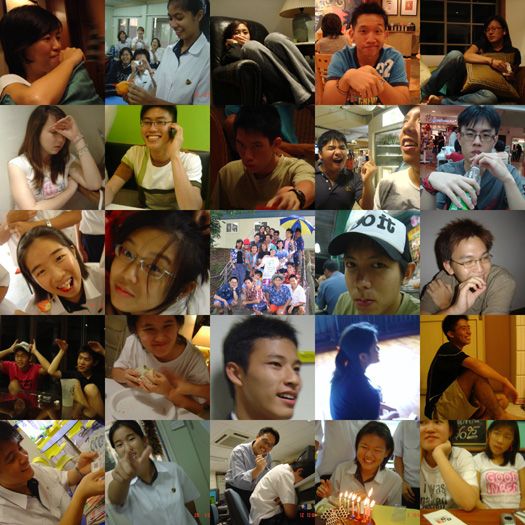
alvin is in SMU
ashley is in Vassar
caleb is in Upenn
brandon is in NYU
dawn is in NUS
eugene is in NUS
howard is in Stanford
jenn is in NUS
jon is in NUS
josh is in SMU
joy is in York
justin is in SMU
liz is in NUS
luke is in York
melissa is in NUS
michlee is in NUS
michteo is in SMU
stella is in Melbourne
sunitha is in NUS
sulynn is in the UBitChy
xiangwei is in SMU
yina is in MacAlester
classpics
more pics
zoo pics
liz pics
more liz pics
tag or be tagged





Philip Captuo
Be Like The Forest
Mysticism
- ‘Coombes always made it a point to know his enemy; the more he knew, the more likely he was to win, but in this case, knowledge had a value beyond the practical. He hoped that facts would help dispel the mythic power of the awesome phantom that know stalked his memory with eyes glowing like the eyes in a jack-o’-lantern’
- strong undertones of the jungle atmosphere/setting embedded in the language and movement of the story
Admiration and Condescension side by side due to a Culture Shock, Division between the two parties
- unable to understand each other, sense of irritation with each other comes through
- showcases both perspectives
- not a breakdown of communication but rather unable to accept each others’ norms/culture/traditions
- contrast of norms illustrated by their behaviour/interaction
- Han refers to the foreigners on page 326, ‘The My always spoke about kilos and metres and the time on their watches. Kilos. Metres. Hours. Jesus.’
- Han speaks in reverence about ‘Ghostiger’, pg 326. asserts strongly, ‘Ghostiger must be left alone…That is why I hope Tiger is not Ghost. If we leave it alone, you will not pay me.’ whereas Coombes mutters under his breath, ‘I’ll do worse than that’.
- Compare to a Soldier’s Return where the Soldier perceives the battles fought in the European Theatre as more humane and more civilized contrasted with the barbaric heinous acts committed in Burma.
Assimilation
- Ultimately, because of total immersion in the foreign country, the soldiers inevitably, consciously or unconsciously, adopt the ways of the people.
- The story ends with Coombes symbolic gesture of tossing his watch (page 327) into the river. ‘Coombes unbuckled the watch, and with a casual movement, flipped it into the river. Instantly, he felt lighter, and he rubbed the band’s impression on his wrist like a prisoner when the cuffs are taken off.’
- Diction – watch tantamount to “prisoner’s cuffs” emphasizes the feelings of initial apprehension and discomfort in the foreign land. Only after casting off his watch, can he finally feel at ease with his surroundings.
Loss of time
- ‘He was not gazing idly but in a way meditating upon the forest’s infinite patience, and trying to draw with each breath some of that patience into himself, for in that fecund world, time wasn’t measured by men’s petty instruments of gear and jewels, but by nature’s clocks…Be like the forest.’
- unable to tell the ages of people, ‘He measured his life by the rises and falls of the sun, the phases of the moon, the rhythms of the two seasons, wet and dry.’
- by the end of the story, Coombes comes to realize he will be stuck in the Vietnam War (essentially a War of Attrition) for a long time more and discards his watch.